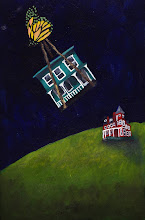I recently had the chance to speak with Hudson Valley photographer Portia Munson for an article I wrote for Medium.com. As the uncertainty of a world in turmoil continues, we can take solace in nature’s cycle of renewal. And even when we can’t be in nature, whether we are dashing through the airport or spending a day on the computer, Portia Munson’s images transport us to that restorative moment where we feel the chaos of our lives stop and let the natural order begin.
Tuesday, June 2, 2020
Nature CAN Nurture
I recently had the chance to speak with Hudson Valley photographer Portia Munson for an article I wrote for Medium.com. As the uncertainty of a world in turmoil continues, we can take solace in nature’s cycle of renewal. And even when we can’t be in nature, whether we are dashing through the airport or spending a day on the computer, Portia Munson’s images transport us to that restorative moment where we feel the chaos of our lives stop and let the natural order begin.
Wednesday, May 10, 2017
Paula Hayes: Her Hand in Nature
Monday, October 13, 2014
Meditation in Nature
Monday, October 4, 2010
October's Autumn


Every year, autumn rolls around and for me, it's time again for the Transcendentalists. With people today spending upwards of 7 1/2 hours on electronic mediums per day, it's worth considering how Henry David Thoreau would view our attachment to the world and to each other. What do we miss while we are distracted in our multi-media, multi-tasking lives? The term 'nature deprivation' smacks of new age mumbo jumbo, but what if Emerson and Thoreau were right, that by becoming a transparent eyeball and communing with nature, we restore our moral compass. Most people see the outdoors as an inconvenient space between their hermetically sealed homes and their airconditioned cars. Being so removed from nature makes them less inclined to connect with its beauty and less inclined to protect it. Thus, I assigned for my 11th grade students to sit outside for 15 uninterrupted minutes. As I watched them dutifully write their homework in their planners "Sit outside for 15 minutes", the inevitable questions follow: May I listen to music? Make a video? Work on my pitch? No, No, and No. In our overprogrammed lives, downtime is a lost art. It's not to be occupied by a nap, tv, or a checklist. Kick leaves five times (check!) Study a rock (check!) No, it requires meandering mentally and physically. Now let's see if I can do my own homework. Try it yourself and let me know how you make out so I can give you an A+.
Monday, April 19, 2010
Planting Trees and Other Subversive Acts


Palestinians hope their burgeoning tree planting campaign will be as influential as Kenya's. As reported in the New York Times, Palestinian prime minister Salam Fayyad has encouraged tree planting on the West Bank to establish a positive presence in the area. And Green Belt is planning to expand their tree planting efforts in earthquake-ravaged Hati.
Sunday, April 4, 2010
Easter

As I drove through budding trees sprouting new growth, I wanted to say something about Easter, something profound without being preachy. I didn't want the day to go unnoticed. Although this is the holiest day of the Liturgical calendar, it has a more universal meaning to me this year.
Monday, October 5, 2009
Want Vs Need
 Whenever the leaves start to change, I break out Henry David Thoreau’s Walden. It’s so American, the notion of building one’s house from scratch, reflecting that upstart, self-reliance as if creating one’s own identity anew. Since those Transcendental ways, our nation has moved away from our pioneer principles, instead becoming a nation of ‘want.’ Buying on credit, storing our excess in metal units, discarding last year’s model in landfills, the lines between want and need are blurred into an obscure mist. Sitting alone, meditating in nature, watching a pond as Thoreau did, has certainly gone out of vogue, but there are signs of its reemergence. Just this weekend, I read about a woman who learned to fix her own plumbing, about the uptick in craft sales, and about a man who swam across Walden pond. A sign of the times, no doubt. As the recession struck a blow to our consumerist psyche, the collective reassessment of how we spend our money grows into how we spend our time. Is it better to have less stuff, but more time? A year ago, many would have opted for stuff, but the idea that we lose fleeting moments of our lives paying for unnecessary expenditures has become too costly in the end. And yet, a life without a certain bit of clutter seems too orderly for me. Where is the balance?
Whenever the leaves start to change, I break out Henry David Thoreau’s Walden. It’s so American, the notion of building one’s house from scratch, reflecting that upstart, self-reliance as if creating one’s own identity anew. Since those Transcendental ways, our nation has moved away from our pioneer principles, instead becoming a nation of ‘want.’ Buying on credit, storing our excess in metal units, discarding last year’s model in landfills, the lines between want and need are blurred into an obscure mist. Sitting alone, meditating in nature, watching a pond as Thoreau did, has certainly gone out of vogue, but there are signs of its reemergence. Just this weekend, I read about a woman who learned to fix her own plumbing, about the uptick in craft sales, and about a man who swam across Walden pond. A sign of the times, no doubt. As the recession struck a blow to our consumerist psyche, the collective reassessment of how we spend our money grows into how we spend our time. Is it better to have less stuff, but more time? A year ago, many would have opted for stuff, but the idea that we lose fleeting moments of our lives paying for unnecessary expenditures has become too costly in the end. And yet, a life without a certain bit of clutter seems too orderly for me. Where is the balance?
So I look to Walden. The house, a small shed by today’s standards, reminds us of what we don’t need, and what we do. Thoreau seemed quite content during his time there, but would it work today? As the scale of the average American home has grown, has it made us any happier? Is all that space what we really need, or simply what we want? How has it affected our sense of family and community? The Rural Studio, founded by Samuel Mockbee at Auburn University’s Architecture School, James’ alma mater, has put together a modern Walden. Seen here in Dwell magazine, the house can be built for $20,000, clearly what some could easily pay for kitchen cabinets. Now I’m certainly not a purist nor a minimalist; however I do want to consider how I spend money, how I fill the spaces around me, and definitely how I spend my time. Perhaps the greatest luxury item we can give ourselves these days is Thoreau’s simple recipe: peace and quiet.
Monday, October 20, 2008
Pollock in the Trees



Looking up at the trees last week, it was as if Pollock himself had dripped colors and lines across the sky. Only nature could be both abstract and concrete in equal doses. Spending the week teaching Transcendentalism and Thoreau sent me into the woods to find the perfect spot to become what Emerson called a transparent eyeball. Framing up images of a trees through the lens of a camera helped make that impalpable task far more tangible. And it made perfect sense when Frank Lloyd Wright was asked if he believed in God, he said, "Yes, but I spell it N-A-T-U-R-E."












